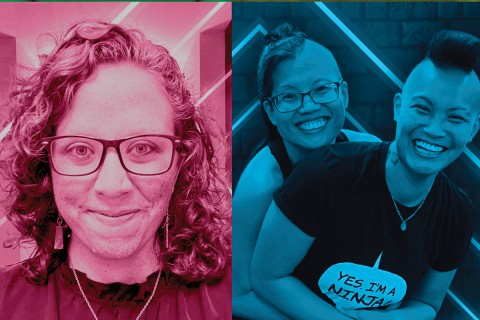A busload of migrants were told something was waiting for them in Chicago
It was our job to be that something.

The first bus full of migrants arrived in Chicago on a temperate night at the end of August. City and nonprofit employees in the area had been hearing rumors of an impending arrival for a while, but then suddenly there they were, climbing out of a pair of charter buses at Union Station. They looked tired and rumpled after a 20-hour ride—and suddenly not like the abstract idea of migrants we had been hearing about and instead like families with little kids and young couples and single men who were specific and individual and here.
Many of the people on the bus were from Venezuela and had made the long overland journey to Texas, where after a few days or hours at a border shelter they had been put on the buses to Chicago. Many of them didn’t know anyone else in the United States, had come here because there was a free bus headed in this direction and because it was as good a place as any other. They had all been told that there was something here in Chicago, waiting for them.
It was our job to be that something. The organization I work for, a nonprofit immigrant legal service provider, was one of dozens tapped by the city to help welcome people to Chicago. The morning after the buses arrived, my coworker and I arrived at the welcome center at 6:45 a.m., armed with stacks of printout listing organizations like ours around the country, orientation packets, and very little knowledge of what we were walking into. Soon the first group of people walked into the welcome center, looking somewhat better rested than they had on TV the night before, and one by one they were brought to our table.





